14 Nuts That Are Packed With Health Benefits
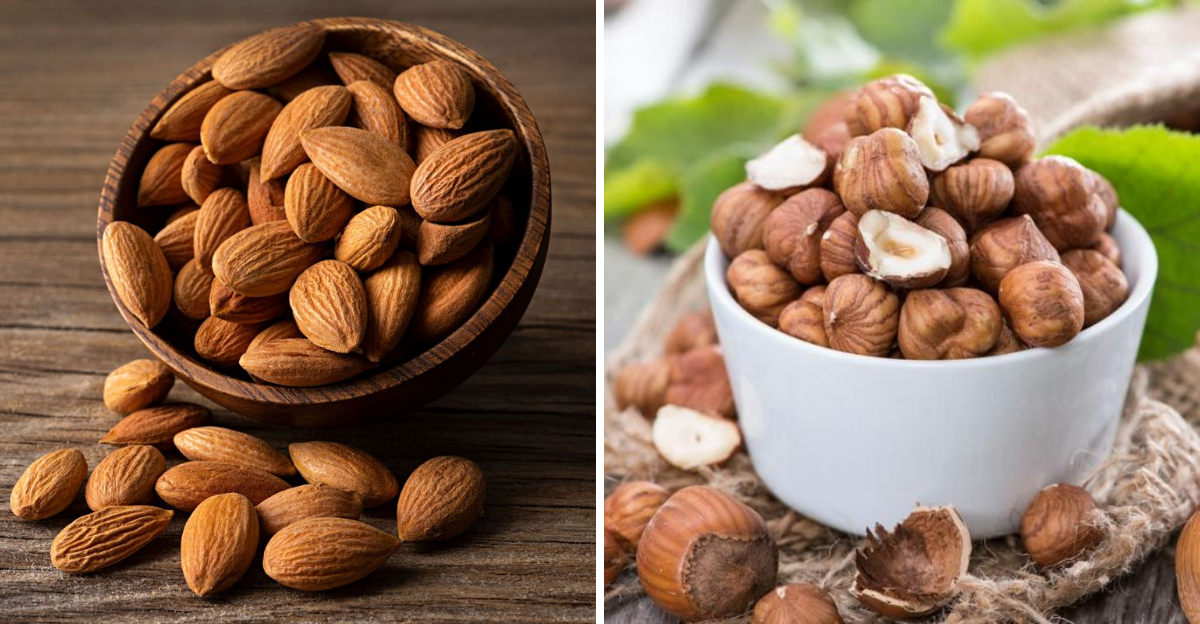
From crunchy snacks to silky oils, nuts deliver powerful nutrition in tiny packages. Whether you want sharper focus, better heart health, or steadier energy, the right nut can move the needle fast. This guide spotlights 14 superstar choices, including a few surprising stand-ins, and explains exactly why they deserve a place in your routine. Ready to upgrade your pantry and your wellbeing with every handful?
1. Almonds
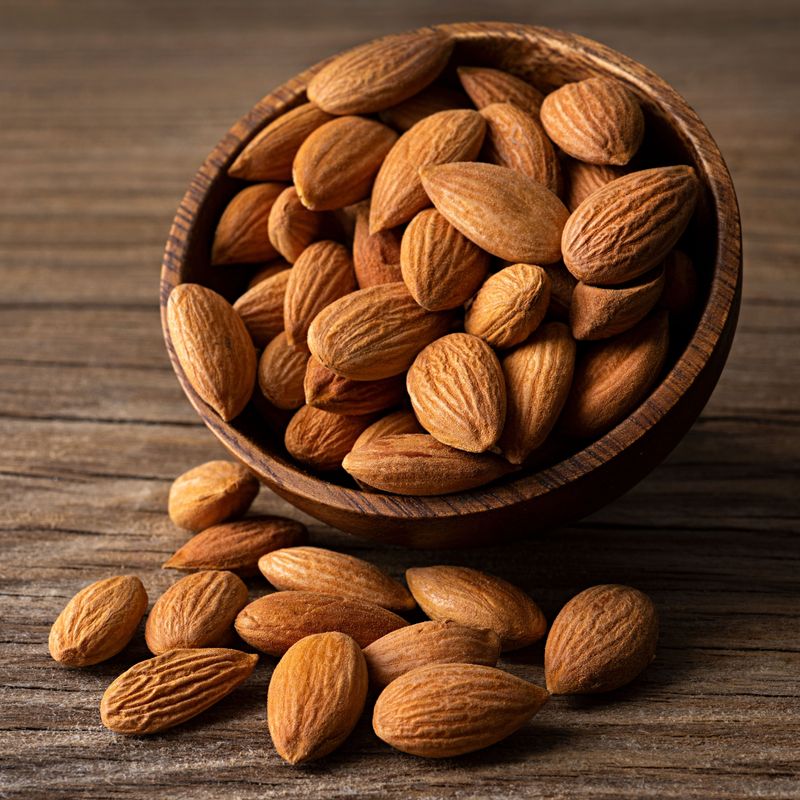
Almonds deliver a balanced trio of healthy fats, protein, and fiber that keeps you satisfied and energized. Their standout nutrient is vitamin E, a potent antioxidant that supports skin, heart, and immune health. Magnesium aids muscle function, glucose control, and a calmer nervous system, while fiber supports cholesterol management and gut health. Enjoy them raw, roasted, or sliced over yogurt and salads. For weight management, a small handful can curb cravings. Choose unsalted versions to limit sodium and watch portions, as calories add up quickly. Almond butter and unsweetened almond milk offer convenient, nutritious alternatives.
2. Walnuts
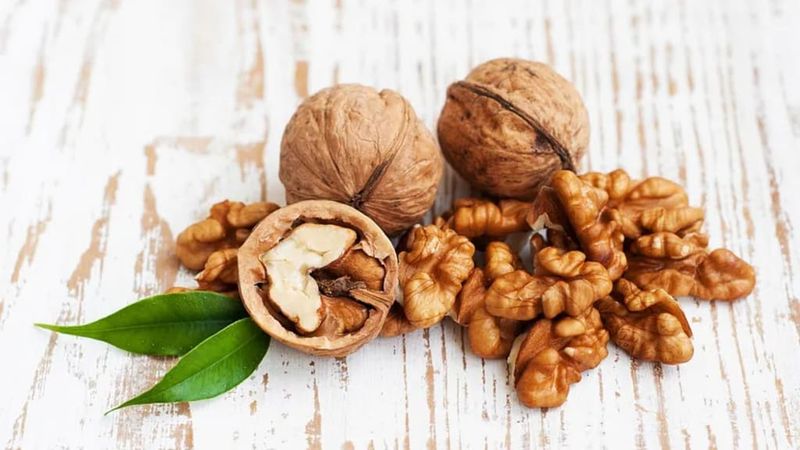
Walnuts are uniquely rich in plant-based omega-3s (ALA), supporting heart rhythm, brain function, and inflammatory balance. Their polyphenols and melatonin add antioxidant power, which may support cognitive aging and sleep quality. Consistent walnut intake has been linked to improved lipid profiles and better endothelial function. Sprinkle over oatmeal, blend into pesto, or fold into salads for crunch and nutrition. Light toasting enhances flavor without excessive oil. Store in the fridge or freezer to prevent rancidity, as the delicate fats oxidize easily. A small daily serving supports heart and brain health, complementing a Mediterranean-style diet.
3. Pistachios

Pistachios deliver fiber, plant protein, and lutein, making them a smart snack for blood sugar steadiness and eye health. Their unique trio of fiber, healthy fats, and protein slows digestion, which supports satiety and glucose control. Antioxidants like polyphenols and carotenoids help combat oxidative stress. Choosing in-shell pistachios can naturally pace eating and portion size. Add them to grain bowls, yogurt, or homemade trail mixes for color and crunch. They pair well with citrus and herbs in savory dishes. Opt for lightly salted or unsalted versions to manage sodium while still getting satisfying flavor and texture.
4. Cashews
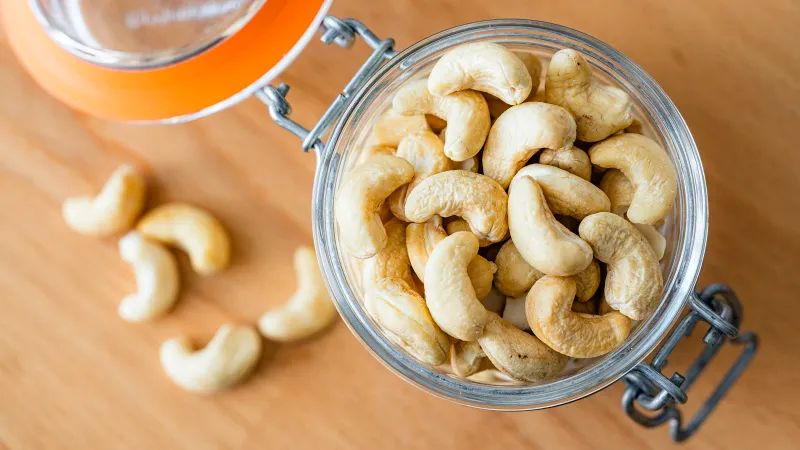
Cashews offer a creamy texture with notable amounts of magnesium, iron, and zinc, supporting metabolism, oxygen transport, and immune resilience. Their monounsaturated fats promote heart health when they replace saturated fats in meals. Cashew butter and soaked cashews can create dairy-like creaminess in sauces and desserts with better nutrient density. Pair cashews with vitamin C–rich foods to help iron absorption. Choose dry-roasted or raw varieties to avoid added oils. Be mindful of portion sizes, as they’re energy-dense. Cashews’ versatility makes them ideal for plant-based cooking, from silky soups to crunchy stir-fries and snack mixes.
5. Brazil Nuts
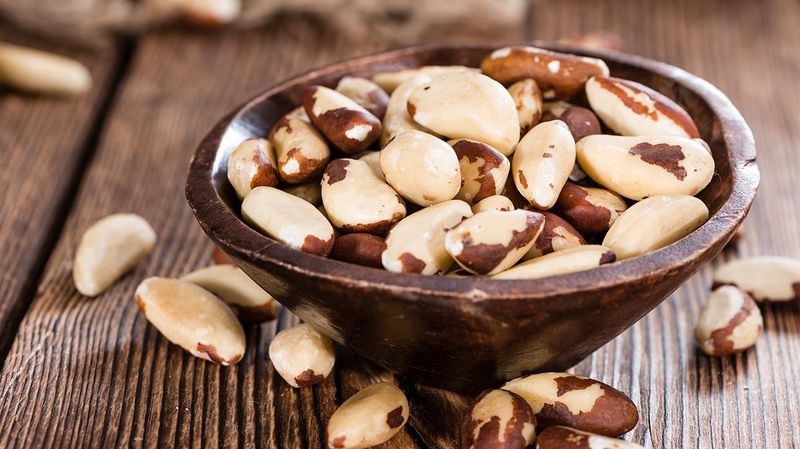
Brazil nuts are one of the richest whole-food sources of selenium, a mineral essential for thyroid hormone activation and antioxidant defense. Just one to two nuts often meets daily needs, supporting glutathione activity and healthy skin. They also provide healthy fats, magnesium, and copper. Because selenium can be excessive in large amounts, stick to small servings and rotate with other nuts. Enjoy chopped Brazil nuts over oatmeal, blended into smoothies, or as a crunchy coating for fish. Refrigerate for freshness. Their nutrient density makes them a strategic, occasional addition to a balanced, thyroid-supportive diet.
6. Macadamia Nuts
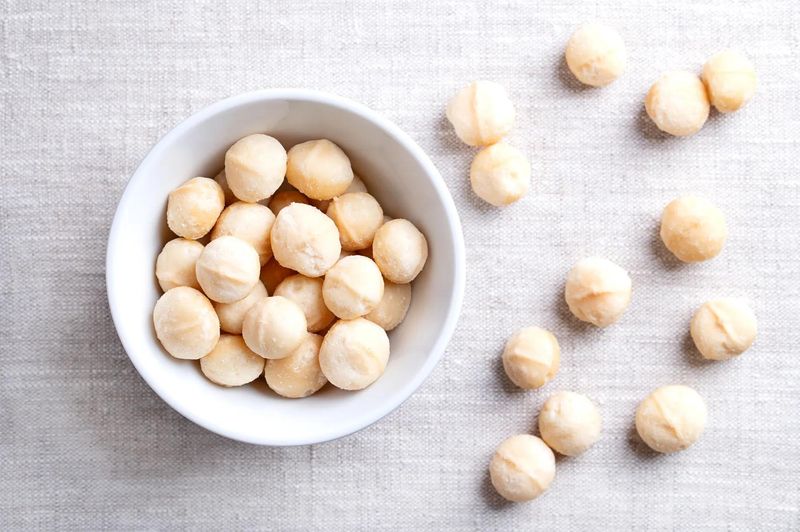
Macadamias are rich in monounsaturated fats, similar to olive oil, which can support favorable cholesterol ratios and a healthy inflammatory profile. Their creamy texture makes them satisfying in small portions, helping with mindful snacking. Macadamias contain manganese, thiamine, and antioxidants that support energy metabolism and cellular health. Lightly toast to intensify flavor, then add to salads, fish, or dark chocolate desserts. Because they’re high in calories, a small handful goes a long way. Store airtight to preserve freshness. For a luxurious, heart-friendly treat, try macadamia butter or crush them into crusts for savory and sweet dishes.
7. Hazelnuts
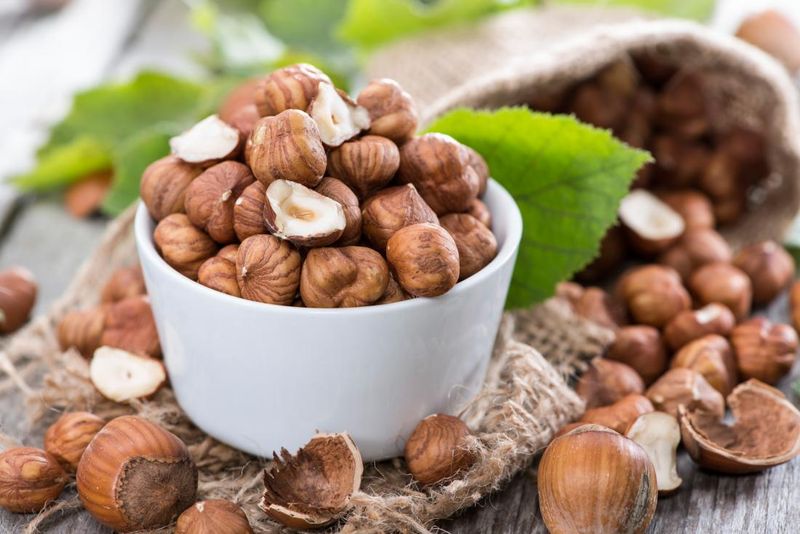
Hazelnuts deliver vitamin E, folate, and manganese, supporting skin integrity, brain health, and antioxidant defenses. Their fiber and healthy fats contribute to satiety and improved lipid profiles. Lightly roasting enhances flavor; removing some skins reduces bitterness while preserving nutrients. Hazelnuts pair beautifully with cacao, coffee, and roasted vegetables. Sprinkle chopped hazelnuts over yogurt, blend into nut butter, or fold into whole-grain bakes. They also supply arginine, which may support vascular function. Choose unsweetened, dry-roasted options to avoid added sugars and oils. A small daily serving complements heart-conscious dietary patterns and adds gourmet flair to everyday meals.
8. Pecans
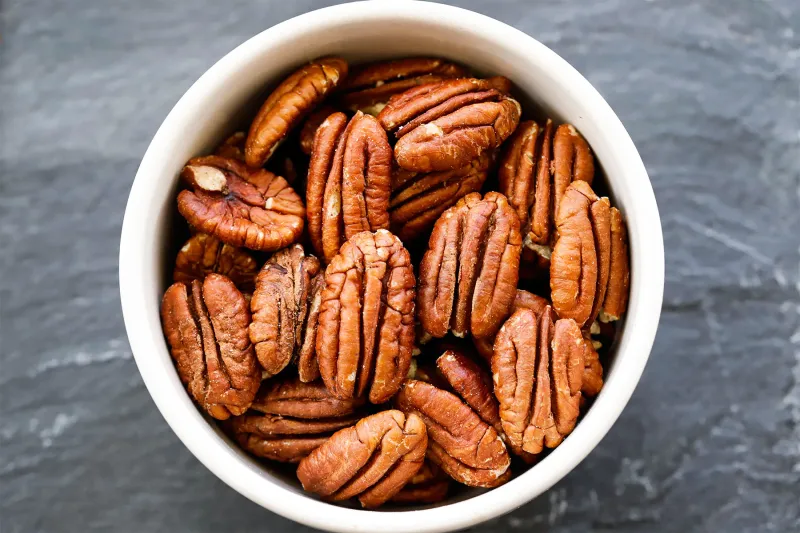
Pecans boast one of the highest antioxidant capacities among nuts, helping protect cells from oxidative stress. Their mix of monounsaturated fats and fiber supports healthy cholesterol levels and satiety. Pecans also provide thiamine, zinc, and copper for energy and immune function. Toast gently to deepen their buttery flavor, then add to grain salads, roasted squash, or yogurt parfaits. Choose unsweetened varieties and skip candied coatings to keep sugar in check. Store in the fridge or freezer to preserve delicate oils. A modest handful enhances heart-friendly eating patterns while elevating both savory and sweet dishes with rich crunch.
9. Peanuts
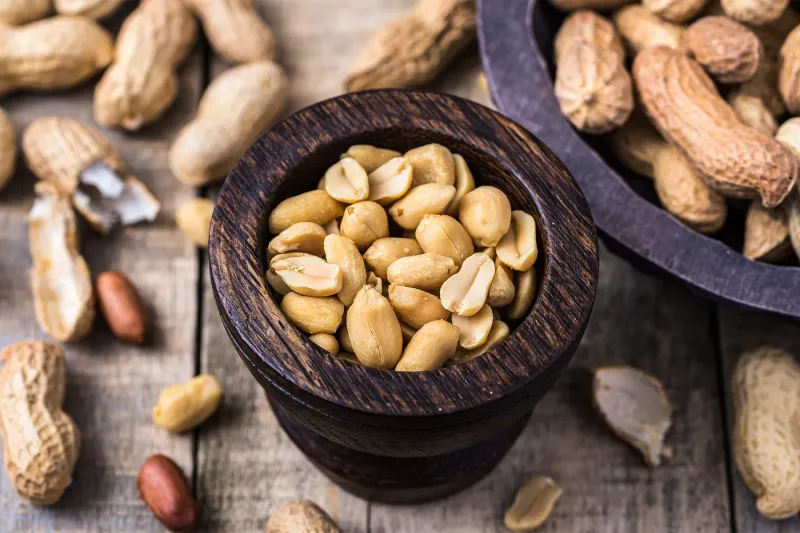
Peanuts, though legumes, offer nut-like benefits with protein, folate, niacin, and resveratrol. They support muscle repair, energy metabolism, and cellular function. Choosing dry-roasted, unsalted peanuts helps manage sodium and added oils. Peanut butter provides convenient, satiating nutrition—look for versions with only peanuts (and maybe salt). Pair with whole-grain toast or apple slices for a balanced snack. Those with allergies should avoid and consider alternatives like almond or sunflower seed butter. Mind portion sizes to keep calories in range. Peanuts are budget-friendly and versatile, fitting into smoothies, sauces, and snack mixes while supporting overall cardiometabolic health.
10. Chestnuts

Chestnuts stand out for being low in fat yet rich in complex carbohydrates, vitamin C, and fiber. They offer a subtly sweet flavor that complements savory and sweet recipes alike. Their starch content provides steady energy, while fiber supports digestive health. Roast for a comforting snack or puree into soups for velvety body without cream. Chestnut flour can enrich gluten-free baking. Because they’re lower in fat than other nuts, they’re lighter in calories per serving. Enjoy seasonally for peak flavor. Store fresh chestnuts in the fridge and score shells before roasting to prevent bursting.
11. Walnut Oil

Walnut oil concentrates the ALA omega-3s of walnuts in a delicate, aromatic oil that supports heart and brain health. Use it unheated or lightly warmed to preserve fragile fats—think salad dressings, drizzles over grains, or finishing roasted vegetables. Its polyphenols add antioxidant support alongside skin-friendly benefits. Store refrigerated in a dark bottle to prevent oxidation. Combine with lemon, mustard, and herbs for a balanced vinaigrette. While not a nut itself, this oil amplifies walnut nutrition when used judiciously. Keep portions modest, as oils are calorie-dense. Avoid high-heat cooking, which can degrade flavor and beneficial compounds.
12. Pine Nuts
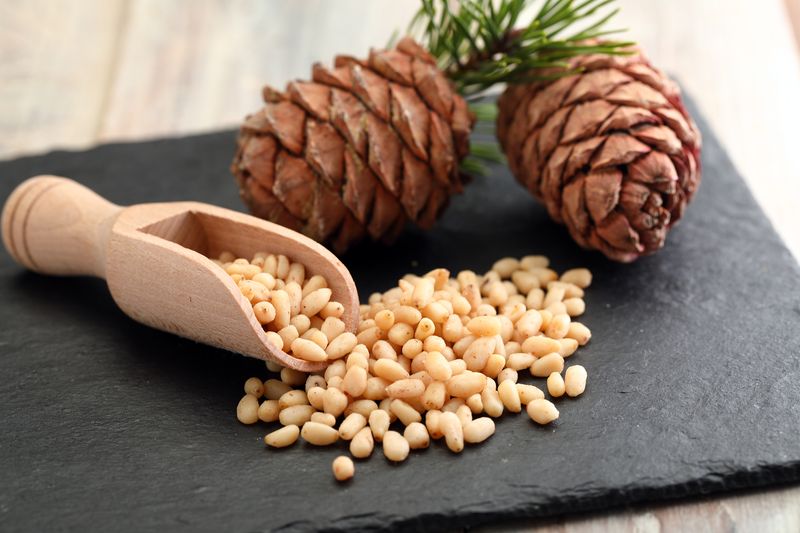
Pine nuts bring buttery richness and nutrients like magnesium, zinc, vitamin K, and vitamin E. They support bone health, immune function, and energy metabolism. Their delicate texture shines in pesto, grain bowls, and roasted vegetable dishes. Lightly toast to enhance aroma, but watch closely to prevent burning. Some people experience rare “pine mouth,” a temporary taste disturbance, so buy from reputable sources and store well. A tablespoon or two adds satisfying healthy fats to meals. Pair with citrus, herbs, and leafy greens for vibrant, nutrient-dense combinations that elevate everyday cooking with Mediterranean flair.
13. Tiger Nuts
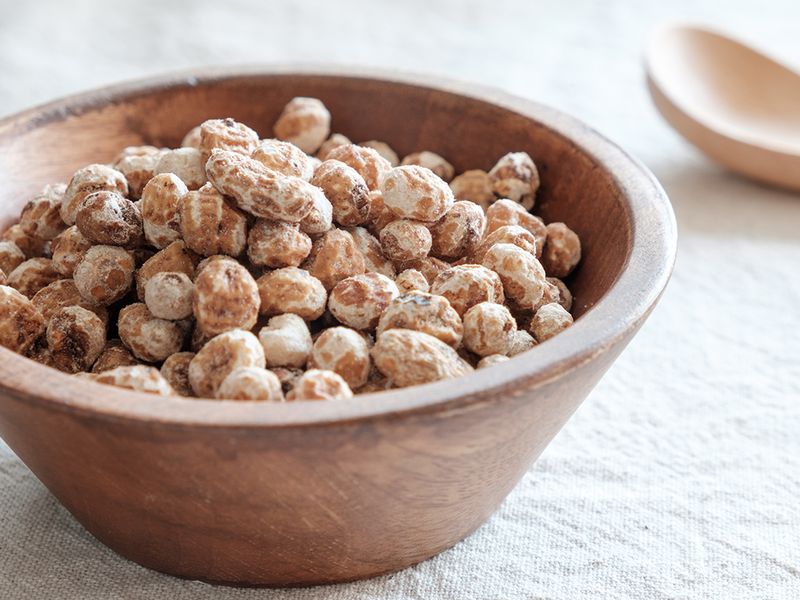
Tiger nuts, actually tubers, offer nut-like chew with exceptional fiber, resistant starch, and plant-based protein. They support digestive health, favorable gut bacteria, and steady energy release. Naturally sweet, they can reduce added sugars in snacks. Soak to soften for easier chewing and better texture. Tiger nut flour works well in gluten-free baking, and horchata de chufa is a traditional, dairy-free beverage. They also contain vitamin E and minerals like magnesium and potassium. Start with small servings to gauge tolerance, as the fiber is substantial. A unique addition for gut-friendly, plant-forward diets.
14. Coconut

Coconut, technically a fruit, delivers versatile nutrition through its flesh, milk, and oil. Medium-chain triglycerides (MCTs) are metabolized quickly for energy, which may support satiety and cognitive function. Unsweetened coconut flakes add fiber and texture to breakfasts and desserts. Use coconut milk for creamy, dairy-free sauces and soups. Choose virgin coconut oil for flavor and refined for neutral cooking; moderate intake since it’s high in saturated fat. Balance with unsaturated fats from nuts, seeds, and olive oil. Coconut pairs well with spices, citrus, and chocolate, enhancing both savory curries and tropical-inspired treats.






